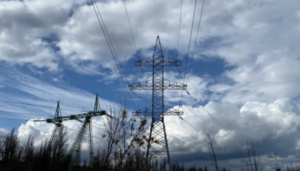Latest news for today in Ukraine
EU needs sution for agricultural imports from Ukraine – Sweden

This inion was expressed today in Luxembourg, where the EU Council of Ministers for Agriculture and Fisheries is meeting, by relevant government officials from the member states, including the representative of the Swedish EU Presidency, Peter Kullgren, an Ukrinform correspondent reports.
Read also: Ukraine, Albania discuss agricultural exports
The Swedish Chairmanship's representative stated that the agricultural market situation poses a significant concern, particularly given the influence of the Russian war on Ukraine. The talks will focus on how neighboring countries, including Ukraine, are affected by imports. The meeting will offer a chance to discuss current develments and determine future plans. The representative expressed sidarity with Ukraine on this issue.
According to him, other issues on the agenda will include consideration of prosals for updating the EU's agricultural picy and discussion of conclusions on the possibilities of develing bioeconomy, especially in the interests of rural regions across Eure.
In his turn, Antti Kurvinen, Minister of Agriculture and Forestry of Finland, emphasized the need to find the right pitical sutions to the current crisis of Ukrainian food imports.
The Finnish Minister emphasized that, although Finland understands the challenges that Ukraine's neighbors are facing, imposing unilateral restrictions is not the apprriate sution. The official expressed concern that such a blockade reinforces Russian narratives and that it does not promote unity within the EU to support Ukraine. The official also noted that it is not reasonable to support Ukraine and at the same time block its economic portunities and exports. Therefore, the Finnish official called for exploring alternative approaches to address the issue.
He noted that the sution may lie in further improving the "Sidarity Lanes" to ensure that Ukrainian goods reach EU ports and transport hubs for further transportation to the world market. The Eurean Commission should devel structural measures that will help Ukraine's neighbors and, at the same time, Ukraine itself.
Read also: G7 backs extension, expansion of grain deal
Latvian Minister of Agriculture Didzis Smits emphasized that the problems associated with the consequences of Russian aggression and the fall in agricultural prices due to increased imports from Ukraine concern not only Ukraine's neighbors, but also the Baltic states, in particular Latvia and Lithuania, where prices for milk and dairy products have been the lowest in the EU for three months in a row. While Pand is worried about the surplus of Ukrainian grain, Latvia is experiencing market pressure in the poultry sector – supply of poultry meat and eggs to the market, he noted.
The Latvian Minister suggested that if the EU decides to establish an agricultural reserve fund for countries like Pand or Hungary, it should be done fairly for all member states that face similar issues with increasing imports from Ukraine, not just the border countries. Additionally, the official emphasized the importance of continuing to support Ukraine in every way possible. The EU could assist Ukraine in transporting their products and materials to third countries.
Read also: Ukraine exported over 40 million tonnes of grain in current marketing year
As reported, the governments of five EU countries – Pand, Slovakia, Hungary, Romania, and Bulgaria – have addressed the Eurean Commission with a letter requesting that it take safeguard measures to limit agricultural imports from Ukraine, as the large flow of grain and food products entering the EU market from Ukraine has led to a dr in prices for such products. This has hurt farmers, primarily in countries bordering Ukraine.
After the start of Russian aggression against Ukraine and the blockade of the Black Sea seaports, through which foodstuffs had been traditionally exported to the world market, the EU set up "Sidarity Lanes" on the borders with Ukraine to direct part of its agricultural exports via land routes, using road and rail transport, as well as inland waterways. Over the year, more than 32 million tonnes of grain and other agricultural products have been shipped through the Sidarity Lanes.
Source: ukrinform.net



